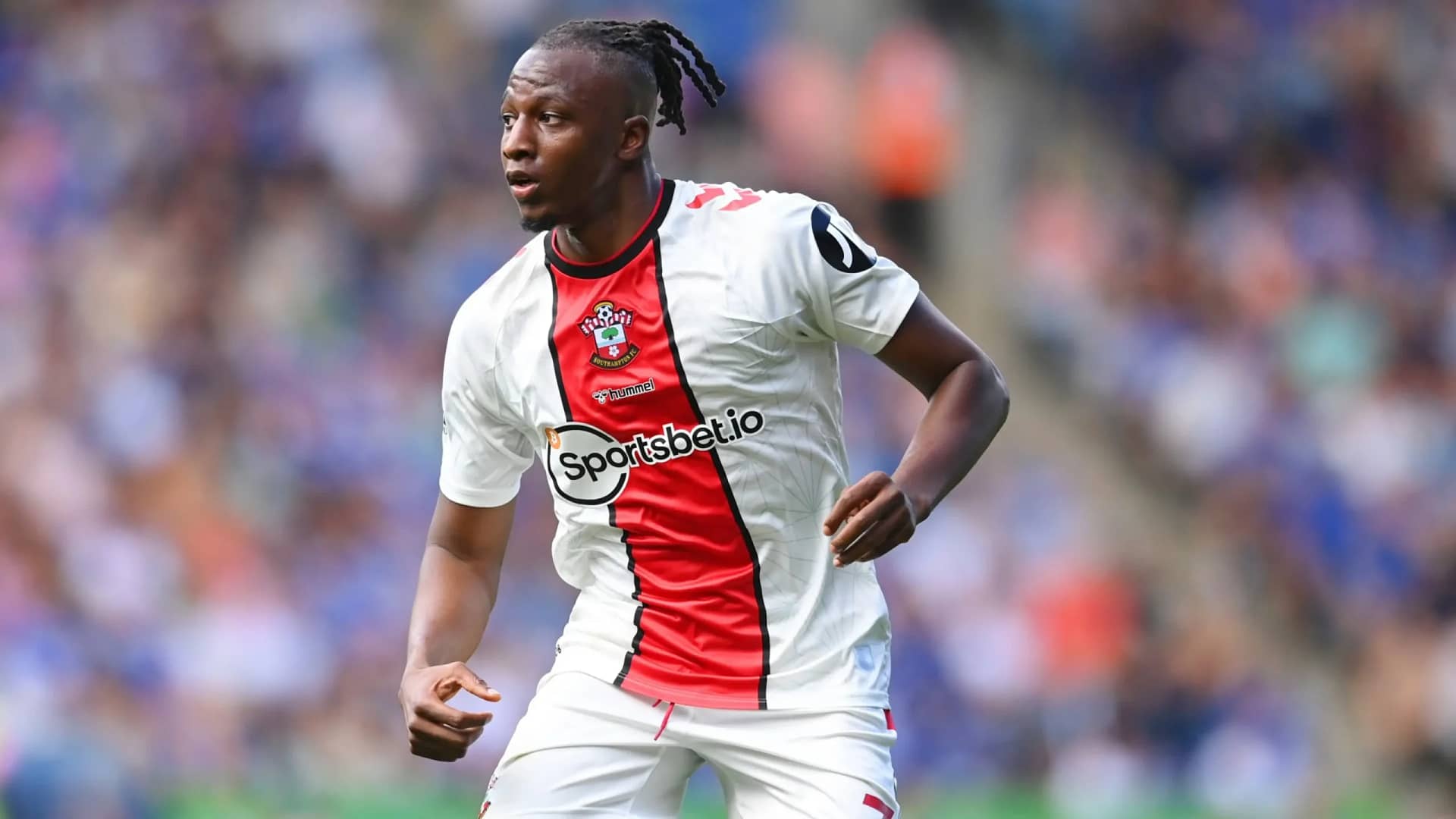Table of Contents. Toggle. Sanctions on specific countries and shifting trade policies have also affected sponsorships and international broadcasting rights. Government interventions during COVID-19 revealed how deeply clubs are tied to national economies, with many relying on subsidies or emergency funding to stay afloat. As the political climate remains volatile, football clubs are now required to become more agile, financially diversified and politically aware in order to remain competitive both on and off the pitch.. Free image source: https://pixabay.com/photos/garbarnia-krakow-football-match-6716141/. Regulatory Reform and Gambling Sponsorships. The dependence of clubs on betting and casino sponsorships has become a pressing issue. A recent investigation found that 296 of 442 clubs in the European Union and United Kingdom’s 31 top competitions had at least one betting partner in the 2024 to 2025 season, including one in three featuring them on front shirts. The Premier League alone saw betting deals worth an estimated 135 million dollars. But regulatory crackdowns are underway. The United Kingdom plans to ban front shirt gambling logos in the Premier League by the 2026 to 2027 season. The Netherlands has enforced a full advertising ban since July 2025, affecting 33 of 34 professional clubs and causing a projected 70M euro revenue loss. Belgium and France are implementing similar restrictions. These policy shifts have forced clubs to explore alternative monetisation strategies such as digital collectibles, lifestyle brand partnerships and streaming sponsorships. For example, clubs like Ajax and PSV have launched fan token programs and exclusive mobile content subscriptions to reduce reliance on gambling income.. Data from KPMG Football Benchmark indicates that clubs heavily reliant on gambling income may see a seven to ten percent drop in commercial revenue unless replaced with equivalent high-margin sponsorships. Analytics tools such as Nielsen’s Sport24 are now being used by clubs to simulate the impact of sponsorship reshuffles across various inventory zones, including sleeve space, LED boards and virtual overlays during broadcasts. These technical adaptations reveal a larger trend toward diversifying revenue streams through more regulation-resilient partnerships. Clubs have begun losing favourable casino and betting deals. For example, Crystal Palace’s £10 million per year deal with NET88 reflects the financial weight of casino sponsorship. New rules mean partnerships with casino operators will need strategic repositioning as online gaming firms pivot from front of shirt to sleeve, training kit or pitch side placements. The collapse of operators like TGP Europe also squeezed Premier League clubs, which face a £3.3 million fine exposure for promoting unlicensed operators.. Although direct casino sponsorships on kits have declined due to legislative pressure, the popularity of online casinos and sports betting remains as strong as ever among fans and bettors. This continuing demand sustains digital partnerships, including content sponsorships, social media campaigns and app integrations that maintain brand visibility in a compliant manner. Nyttcasino and similar casino review platforms play a key role in connecting fans to legal and reputable betting options, ensuring engagement flows through regulated channels. As gambling logos disappear from high visibility assets, clubs are now under pressure to replace that value with equally impactful alternatives.. Research from Deloitte shows that shirt-front visibility delivers up to 43 percent of a sponsor’s total brand recall among fans, making its loss a significant marketing challenge. Some clubs are now leveraging data analytics to prove ROI from sleeve and digital placements, using metrics such as impressions per minute and click-through rates during live match streaming. In response to regulatory tightening, brands in automotive, crypto and fintech are emerging as reliable alternatives, offering compliant yet scalable sponsorship models.. Related: Influence Of Fan Culture In European Football Stadiums. Free image source: https://pixabay.com/photos/fabio-coentrao-player-athlete-89568/. Brexit Effects. Since the United Kingdom’s exit from the European Union, squads face stricter work permit rules and inflation in domestic player valuations. Lower tier teams especially struggle amid surging transfer fees for UK based talent. These clubs now must meet complex criteria when signing EU players, including international appearance thresholds and league rankings, which disqualify many promising prospects.. As a result, Championship and League One clubs are forced to prioritize domestic signings, often paying a premium due to limited availability. Data from Transfermarkt shows that average fees for British players under 23 have risen by over 20 percent since 2020. The talent pipeline from Europe has narrowed, pushing clubs to invest more in domestic academies, yet this approach carries longer development timelines and uncertain returns.. Post Brexit currency volatility has reduced the pound’s value. With many sponsorships denominated in euros, clubs are receiving less value. European firms hesitate when considering UK partnerships, amid new tax and regulatory environments. Sponsorship consultants have noted a measurable decline in cross border brand deals, especially in tech and retail sectors.. For instance, Bundesliga clubs reported higher conversion rates with European sponsors than Premier League clubs in 2024 due to exchange rate stability and uniform EU commercial law. UK clubs are now negotiating contracts with built-in currency adjustment clauses to protect against future swings, but this adds complexity and reduces deal attractiveness. Financial modelling by Deloitte Football Money League indicates that currency fluctuations have reduced net sponsorship income for mid-tier Premier League clubs by as much as eight percent annually since Brexit.. Free image source: https://pixabay.com/photos/brexit-eu-europe-united-kingdom-4011711/. Club Ownership Rules. The United Kingdom is crafting a Football Governance Bill that will establish an independent regulator. Initially, it included provisions for evaluating ownership bids through foreign policy lenses, raising concerns from UEFA and fans about state interference. This has sparked debate over whether football governance should prioritize ethical considerations over commercial opportunity.. The regulator will also be tasked with financial oversight, club licensing and ensuring long term sustainability of teams, particularly in the lower leagues. While supporters of the bill argue it will prevent financial mismanagement similar to the collapse of Bury FC, critics fear it introduces bureaucratic delays in the approval of legitimate investments. Legal experts warn that without clear criteria and timelines, the bill may discourage timely deals involving foreign capital, particularly from markets such as the Middle East and Asia.. Premier League executives like Karren Brady from West Ham have expressed concerns that over regulation could deter high net worth investment and harm revenue generation. Foreign consortiums looking to invest in English clubs may view the oversight as an unpredictable risk, especially when ownership assessments are tied to geopolitical factors.. For example, the delayed approval of the Saudi led Newcastle United takeover created uncertainty across the market, with legal proceedings and stakeholder protests lasting nearly 18 months. Investment advisors point out that clubs with unclear governance frameworks have seen valuations stagnate, as buyers build regulatory hurdles into their risk models. As a result, there is growing pressure from club owners and league officials to balance ethical transparency with economic competitiveness, ensuring that regulatory frameworks do not inadvertently stifle growth or global appeal.. Economic Pressures. Economic volatility has reignited scrutiny of club finances, with UEFA reinforcing its Financial Fair Play rules to prevent overspending and unsustainable wage bills. Clubs are under increasing pressure to maintain balanced books as sponsorship losses from gambling bans and shifting currency rates reduce available revenue. Social campaigns calling for responsible gambling have intensified, with Ajax’s partnership with Unibet drawing criticism from mental health advocacy groups for perceived mixed messaging.. In Belgium, gambling funds previously represented 12.7 percent of club revenue, amounting to €10 million of €79.3 million leaguewide and this gap now challenges club sustainability under new advertising bans. Clubs must now prepare for increased financial auditing and transparency requirements, particularly those receiving public funding or playing in UEFA competitions. Analysts predict that smaller clubs without diversified income streams may become more reliant on transfer profits or community bonds to remain solvent.. To adapt, clubs are seeking partnerships with non-gambling sectors such as automotive, fashion, renewable energy and technology. Traditional sponsorships are now being supplemented by integrated digital strategies, including mobile ticketing apps, subscription content and branded esports competitions. Online casino websites are adapting by shifting focus from kit sponsorships to digital activations like virtual matchday events and loyalty programs tailored to fans in regulated markets. This trend reflects a broader transition in the commercial ecosystem of football, where revenue growth increasingly relies on data driven engagement and cross platform fan experiences that extend beyond the pitch.. Final Thoughts. Political and economic transformations are forcing European football clubs to rethink their commercial strategies. Regulatory gambling bans, Brexit’s financial implications and potential ownership restrictions are shrinking traditional revenue lines. In response, clubs are diversifying sponsor portfolios, with sectors like technology, finance and entertainment gaining precedence.. Online casinos now pivot toward digital sponsorships and fan engagement platforms rather than traditional placements, aiming to remain visible under stricter regulations. Clubs are also turning to subscription-based streaming services and blockchain enabled fan tokens to build new revenue streams. In the Netherlands, clubs risk losing €70 million due to a full advertising ban on gambling, which affects 33 of 34 professional teams and highlights the system’s dependence on one sector.. Belgium presents similar data, where 12.7 percent of total league revenue i.e. €10 million out of €79.3 million came from gambling and now needs replacement. The shift in regulations has encouraged clubs to focus on branded digital content, exclusive online experiences and data-driven marketing to connect with fans and sponsors. These new strategies help clubs remain competitive and financially resilient in a fast-changing commercial landscape.



